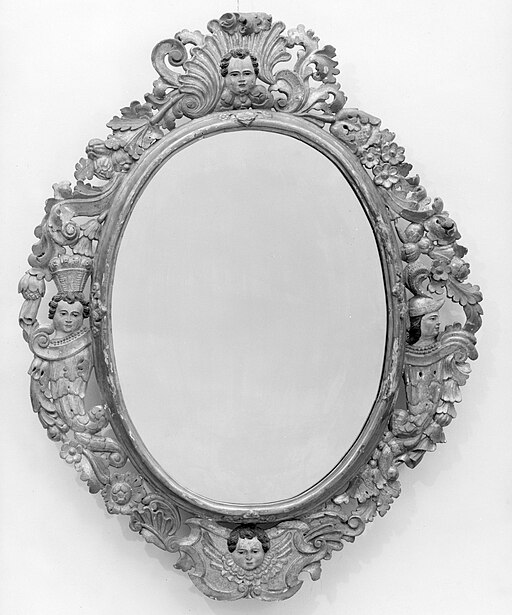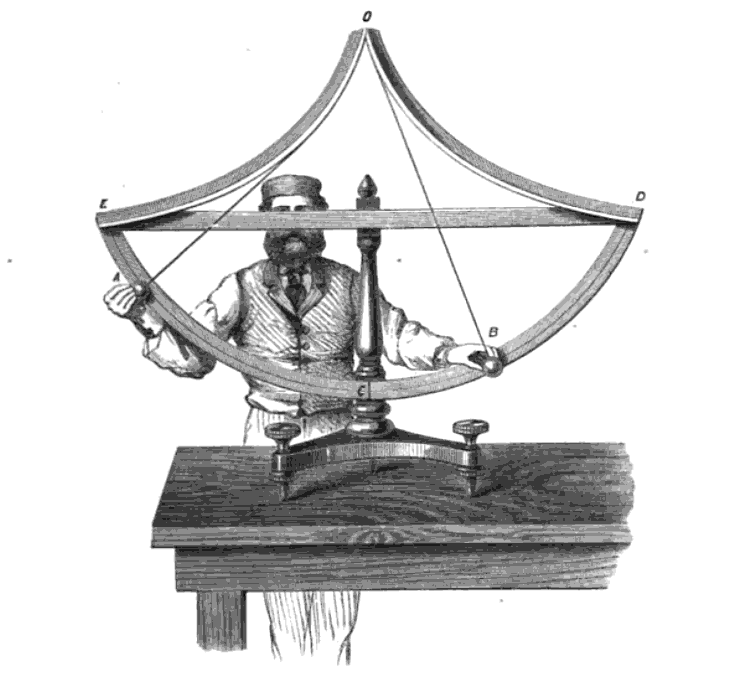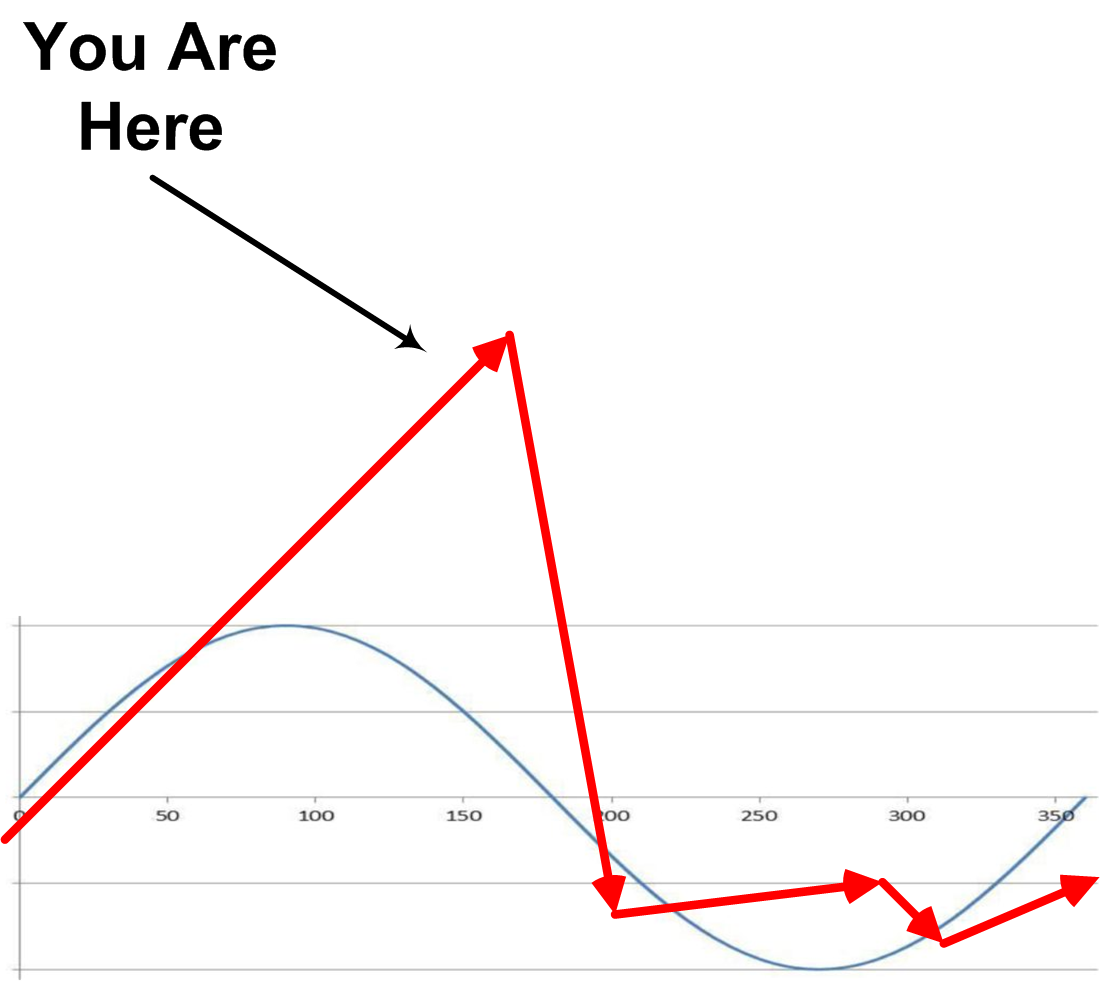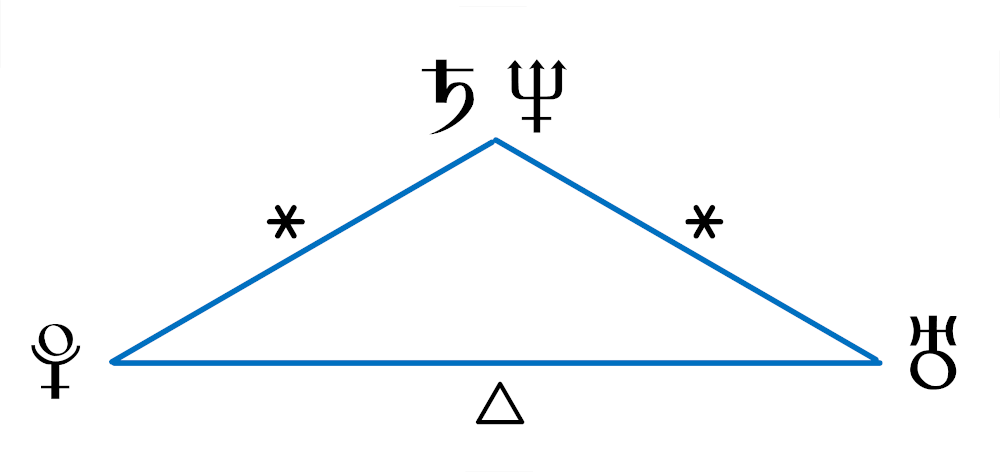I began writing these notes on Saturday May 24, with Saturn just about to enter Aries in roughly 12 hours. This seems like a good time to reflect on the meanings of the Saturn/Neptune conjunction on the Aries point which is the focus of the main astrological factors of the next few years.
I am also writing this since it hits my chart personally – I have Mercury at 29 Pisces 20, less than a degree from the Aries point. Especially with my being a writer, the Saturn/Neptune configuration affects me strongly on every level, from personal to global externally and from mundane to spiritual personally.
It is also worth noting that I have Saturn and Neptune loosely conjunct in my natal chart. I view this period we are entering now as a kind of culmination of major themes that have been with me my whole life. My natal Saturn and Neptune are both in Libra so my issues have to do with balance, reconciling and combining opposite factors.
I want to meditate on using the Saturn/Neptune conjunction as they transition into Aries as the frame for a spiritual discipline during this period. I suspect that we are coming up on a period of turbulent, fundamental, and possibly violent changes. This will take a great deal of grace, flexibility and self-awareness to navigate the brutally difficult mental, spiritual and emotional stresses that will be part of this. That is my main focus – the individual’s response to the changes we will be seeing.
This is a rough period for me, and I am reflecting this way to help process the turbulent internal stresses I feel. I assume I am not the only person affected this way.
—
First, some astrology basics on the two planets.
Saturn is moving into Aries, a sign where it is in its fall. This can mean loss of control, disgrace, prison, loss of respect, being disgraced and ignored. With Saturn having to do with control, rigidity, structure, and also responsibility, all of these are shaken when in fall. At is best, Saturn in fall is gracefully admitting and dealing with defeat, downfall, decline. At its worst it is refusing to admit decline and loss of control, and resorting to blaming. The key here, which is the key to Saturn in general, is honesty and taking responsibility.
Neptune is moving from cold, wet Pisces where it is very strong and comfortable, to hot dry Aries where it is much less effective. Neptune can be dreams, religions, also fantasy, imagination, falsehood and illusions. Moving into a sign where it is weaker can be dis-illusioning, dreams falling apart, religious or spiritual crisis. Physically Neptune is also related to toxic liquids – the Greek word in the New Testament for sorcery is pharmakeia, the root from which we get the word pharmacy – deception, control or manipulation using poisonous drugs. That is very Neptunian.
The higher side of Neptune is a real spiritual connection, but that is very tricky to do right. It is far too easy to cling to illusion.
—
Here are some ways to think about the meanings of the Saturn/Neptune conjunction. All of these come from combinations of the planet meanings I outlined above. If any of these touch a nerve for you – if you react with anger or fear or defensiveness, or just ouch – that is a sign that particular meaning will be touching you in the coming months. Remember that blaming and refusing to take responsibility is one of the weaknesses of Saturn in fall.
– illusions being shattered and coming back down to earth; dealing with the consequences of that.
– places we lie to ourselves in order to have the illusion of control. Places where we lie to others, putting on a false front.
– places we have been lied to; coming to realize and admitting that; taking steps to avoid being manipulated by lies. Saturn/Neptune in Aries can be a bitter, disillusioning wake-up call.
– dealing with the ill effects of being poisoned – Neptune can mean poisons, especially poison liquids, especially those being given in a deceitful or hidden way; fall and death found to be caused by poison. This can mean toxic drugs or foods, or toxins in the environment. Saturn/Neptune could easily play out as the downfall and death of a world leader where poisoning and deception is involved.
– Saturn in fall can be refusing to take responsibility; lying and blaming.
– control based on lies and delusions falling apart; attempting to cling to power by refusing to admit that and doubling down on the lies.
– a time of drastic fracturing political change; beliefs and ideologies falling apart. Old structures and old securities dissolving and collapsing.
– old powers losing control and falling as people realize their power is based on illusion and deceit.
– refusing to take responsibility for lying; doubling down on lies; being caught and called out out for lying. Being caught lying and trying to blame others.
– refusing to change; clinging to structures that are falling apart and refusing to admit that is happening.
– a spiritual crisis; loss of credibility or faith in old established religious structures and institutions; a crisis of authority for religious institutions.
If you do not resonate or have a reaction to any of these suggested meanings, check to make sure you still have a pulse.
—
I think the core meaning of what we are dealing with is, spiritual crisis.
The changes we are watching our society go through are a kind of spiritual collapse, a collapse caused by spiritual emptiness or deadness, where the living core is hollowed out so the person is walking dead, living in superficial illusions that have no life to them – that fits the symbolism perfectly.
Some people are talking of this time as a grand new beginning, a kind of planetary reset. To make the transition the dead shell of outworn structures is falling apart, and to survive there is a need to connect up to the living spiritual center.
Remember that this is a long term process.. very long term.. very, very long term, as in centuries – and this turbulent start to the new period will mostly be about the old collapsing. This is not the much hyped Dawning of the Age of Aquarius (cue string section and chorus).
The worst way to respond is to continue clinging to a dead world, one with no living core. The second worst way is to assume we are right on the verge of a new Golden Age, once we get rid of all those evil people getting in the way and get just a few bugs out of our grand New System. This is not the next big step of Progress; it is more like the mythology of Progress finally collapsing.
In order to survive this sort of earth-shaking change you need to get at the highest aspect of Neptune, the fidelity to the living spiritual core, and to do the fall part of Saturn with as much awareness and grace as possible.
That which is dying needs to die; that which is phony needs to be seen through; and the worst thing to do is to cling to lies and double down on them – that is a recipe for mental and emotional collapse, fracturing. Expect a lot of mood swings, depression alternating to blind rage with possible violence – an example would be the outbreaks of vandalism on Tesla vehicles. I would not be surprised if we see more of the sort of “Mostly Peaceful Protests” that marked the Summer of Covid and George Floyd.
Back in Spring of 2022 I did an essay on my other blog that I titled, Spiritual Emptiness – where I quote extensively from the great Russian spiritual writer St. Theophan the Recluse. I think that describes the sort of spiritual crisis of an empty world that is coming to a head these next few years.
—
Another major theme that surfaces repeatedly is letting go of delusions, and dealing with the consequences of delusion and deception
Closely related to that is the theme of taking responsibility for consequences, and that is likely going to be among the most difficult to do since Saturn in fall is weak on responsibility and strong on blame and excuses.
It really doesn’t matter who is “to blame”, as finding a scapegoat does not make problems go away. I suspect that much of the likely violence of the next few years will be people trying to find someone to blame and punish.
If I have been lied to I am the one who has to deal with that
I am responsible for the consequences of any actions I take, whether or not I did them in good faith, whether or not I was lied to or fooled. I have no-one to blame. (Saturn in fall could very easily work out as refusing to take responsibility for failure; trying to duck consequences.)
—
A lot of this focuses back on each individual person’s response. I originally titled this essay, Saturn/Neptune as a Spiritual Discipline, and I think that is a good way to approach this.
For each of us as individuals this circles back to a matter or personal awareness and responsibility:
– admitting where you lie to yourself .
– admitting where you have an illusory self-image, or present a magnified or false self-image to the world – for reputation, for admiration, for money, for friendship.
– admitting your own errors and limitations. This is a good time for what Catholics call the Examination of Conscience – letting go of excusing or rationalizing your own errors and weaknesses.
– not putting on a fake face.
– admitting the possibility of failure, or of covering over failure by either not admitting it or glossing it over or excusing it.
This last point has a large scale political dimension to it. Part of America’s dilemma and weakness is the inability to ever admit we can do anything wrong – or that we are losing another in a string of messy catastrophic wars – or that we are no longer the great shining Light to the World we like to see ourselves as. The US is in decline in a lot of ways, and until we own up to that and take steps to deal with it we will continue to be blind-sided by one catastrophe after another.
In with its good points – and I think there are a lot of them – the MAGA movement has a large element of nostalgia for a mythical golden age. America is not Great anymore, and we cannot go back to the conditions of lifestyle, affluence and industrial domination of the 1950’s.
It will be a real test of strength and integrity for Americans, individually and as a nation, to be able to admit we are in decline, that we no longer rule the world, and that we are in the midst of a collapsing empire and have to deal with the messy consequences. Unless I miss my guess, after the next few years that condition will be very difficult to deny.
It takes a lot of strength and integrity to gracefully admit defeat – we will see if our world leaders are strong enough to do that.
For my friends and colleagues in England and Europe – examine your own condition.
—
I talked about this being a crisis of faith, a spiritual crisis. I think this coming period is going to be very turbulent and important specifically for the Roman Catholic church. My previous essay was an analysis of the Inauguration Mass of Pope Leo XIV . Based on some critical configurations in that chart I expect that the church is entering a period of loss of credibility and authority.
This impacts me personally since I became Catholic just a few years ago. With the Catholic faith, I am having to come to terms with admitting that the old institution is deeply corrupt, and I can’t count on the Church for security and stability. I have also learned that some parish churches can be unhealthy.
Saturn can mean a dogmatic, rule-driven approach to religion, and that is a very shaky ground for stability. The strength and support that comes from religion has to go deeper than a set of dogma or a political institution, and I am having to sort that out. For me personally this period is a severe crisis of faith, and I can’t predict how it will turn out. I expect I am not alone in dealing with that.
—
Hovering in the background, and overshadowing this entire situation is the ubiquitous, all-encompassing Mainstream Media (MSM) – the techno-media world most of us are immersed in. That has been a pet theme of mine for years.
Five years ago I did a video on the Grand Conjunction of Jupiter and Saturn as ushering in a period where the big battle will be for control of our minds using media.
My series on the Sorcerer State goes into these same issues, and this Saturn/Neptune conjunction period is where they all come to a head. I think of this upcoming period as like the moment in the Wizard of Oz where Dorothy throws a pail of water on the Wicked Witch of the West.
I’m melting…
Media awareness is absolutely critical to navigate the changes of the next few years.
– admitting where you’ve been lied to.
– awakening to media manipulation; becoming aware of it; taking steps to become more media savvy. This is especially important as the MSM continues to lose credibility and becomes more vague, shrill and incoherent – having to get a distance from that to avoid a psychological meltdown.
– admitting the effect media has on us; getting past that odd delusion that most people have (including me most of the time) that I am the one person who is immune to being duped by the media because I’m too smart for that.
Note that I am writing this essay on an old backup computer that does not have Internet turned on – I have figured out that when I am on my main laptop I stop periodically – roughly every 17 seconds or so – to recheck my email and the news and blog sites… I’m addicted and I know it, and I have learned that working on this offline machine is much quieter, more peaceful and less stressful. Being off the Net helps clear a kind of foggy tense blur in my mind.
For me an Internet Fast will part of my discipline this summer. I suspect that I am not the only person who might find that helpful.
—
Hopefully I have suggested a few ways to think about this Saturn/Neptune conjunction period, and suggested some ways to navigate it and come through intact.












